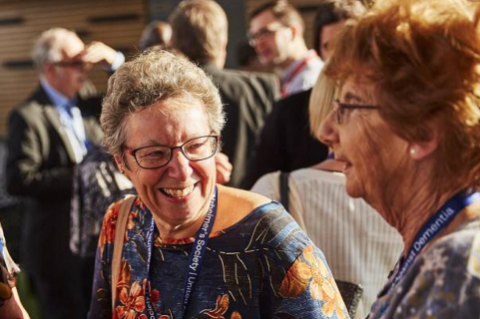Our research
Alzheimer’s Society is the UK’s leading care and research charity for people with dementia. Research will beat dementia.
Our pioneering research programme works in collaboration with world leading scientists and people affected by dementia, ensuring the research we fund is the highest quality and addresses the highest priority issues.
Together, we will make breakthrough discoveries in how we understand the causes of dementia, develop effective treatments, improve care and ultimately find a cure.
We've invested over £124 million in dementia research since 1989
Over 400 researchers are working with us across the UK right now
Last year we invested £23 million in research and innovation
Our Doctoral Training Centres will support up to 90 new researchers
We support world class research into Alzheimer’s disease and other rarer types of dementia, such as vascular dementia, Lewy body dementia, and frontotemporal dementia, so that no one is left behind.
Alzheimer’s Society is the only dementia charity that funds all types of dementia research from basic biomedical through to clinical and care research.







